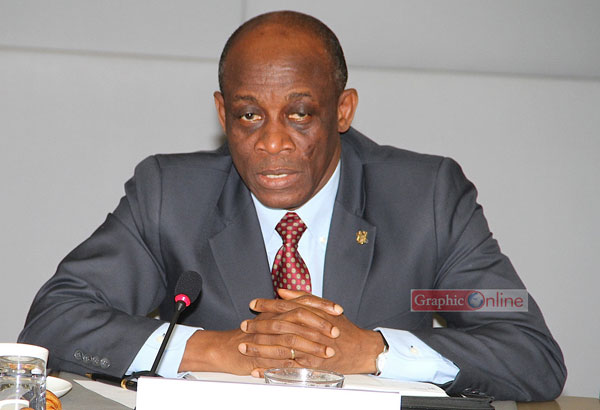
I’m not the cause of NDC’s defeat in 2016 elections — Seth Terkper
Former Finance Minister Seth Terkper has said his fiscal decisions cannot be blamed for the 2016 election defeat of the National Democratic Congress (NDC).
According to him, every decision he took was well thought-out and properly vetted by the government before it was implemented.
He said he could not have afforded to dole out money to people when the country was going through critical moments in its history.
Speaking to Joy News’ last Monday, he declared: “We couldn’t keep the Single Spine Salary Structure at 70 per cent including arrears, about 60 per cent, excluding arrears without doing something about it. You had to take some difficult measures.”
Abysmal performance
Many former government officials have been blamed for what has largely been described as the abysmal performance of the NDC in the 2016 presidential poll.
Some critics who were in the past regime have laid part of the NDC’s defeat at the Finance Minister’s doorstep because of what they described as his “rigid policies.”
Public Sector Accountancy lecturer at the Accra Technical University, Dr Ibrahim Zubairu, said Mr Terkper failed to appropriately respond to the then opposition NPP’s claim about the mismanagement of the economy.
Mr Terkper, however, said he was pleased with his performance as the finance minister and that of the government.
According to him, despite a difficult power crisis which plunged the country into darkness, his government was able to put in adequate measures to solve the problem.
Energy sector
He believes the energy sector may not have been given a clean bill of health if he had not taken some of the decisions he took during the period.
“I am happy with what we left behind, he said, and added that the nation faced significant setbacks with the dumsor,” he said.
Mr Terkper stated that no economy could withstand the experience Ghana went through in the hands of its West African neighbour.
Also in 2016, the finance ministry allocated more of the oil money to Capacity Building (GH¢83 million), whereas agriculture which is the backbone of the economy, was allocated GH¢27.6 million.
Mr Terkper explained his decision should not be misconstrued because it was guided by the Petroleum Revenue Management Act, one of the strictest laws which regulated the two sectors he allocated the money to.
“The budget allocation is approved by Parliament and we should be careful in just taking capacity building as a headline as it could have benefited the agric sector,” he said.
